Bottled water business involves bottling and distributing drinking water to consumers. Drinking water can be purified, distilled, or natural spring water and this business cater to customers who prefer a healthy lifestyle. There is a growing potential for this business for health conscious people as it helps in avoiding ailments like typhoid, cancer, obesity, dehydration, and also helps in living longer. Also, bottled water is consumed in all parts of the world thereby helping business owners in this business generating sales year in and year out.
According to the report of Statista, packaged water business alone contribute to 18% sale of total beverage sales all over the globe followed by bulk water sale.
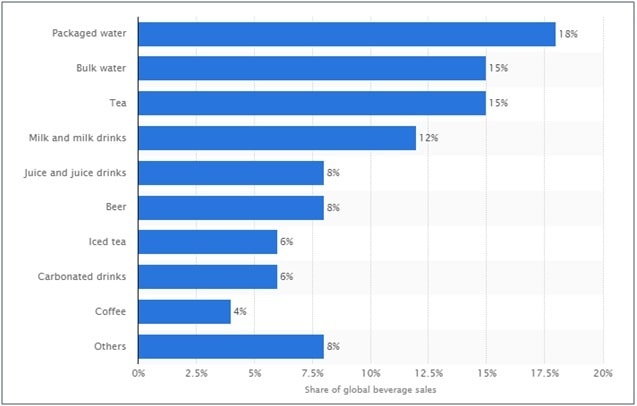
According to the International Bottled Water Association, bottled water is second only to carbonated soft drinks in commercial beverage sales in the United States. Total bottled water volume grew from 11.8 billion gallons in 2015 to 12.8 billion gallons in 2016, an increase of nearly 9% in the US alone, according to a study by Beverage Marketing Corporation. The Asia Pacific has been the leading regional market for bottled water, with over 30% share of total consumption in 2014. Also, a study by Market Research has reported the global bottled water market to be valued at USD 17.0 billion in 2014 and is expected to reach approximately USD 280.0 billion by 2020, growing at a CAGR of around 8.5% between 2015 and 2020. Seeing the great growth potential for bottled water business, let us take a look into steps that are needed to start this business:
1. Niche and Demographics
Bottled water primarily includes drinking water either packaged in glass or in plastic bottles. Bottled water can be in either of the 2 forms: Carbonated and Non-Carbonated water. Another way of segmenting a niche is by choosing the size and shape of bottled water. Moreover, this water can be of either of the following types:
- Distilled water
- Spring water
- Mineral water
- Sparkling water
- Flavoured water
- Water with low pH value
The demographic and psychographic compositions for bottled water consumption encompasses all aspects since every human and living being on earth drinks clean and portable water. And for this reason, the target market for a bottled water production company should transgress people belonging to different financial backgrounds, culture, race, ethnicity, age et al. The price of the bottled water should be set such that it is easily affordable and packaged in different sizes and different price points.
2. Business plan
Once relevant discoveries are conducted from the market research, one must write a solid business plan in order to include a detail of how you intend to run your bottled water business. Some key aspects that your business plan must include would be an executive summary, financial projections, marketing strategy, operational strategy, management team, legal details and location analysis. The process involved in production companies in the bottled water industry comprises of purifying water and then filling it into plastic and glass bottles for consumption. These bottles are then properly capped and labeled accordingly before being sold to the customers.
Related- How to Start Beverage Business
The business plan should aptly determine the mission of your small water bottle business, a brief description of your target customer, the state of the market, the way you plan to penetrate the market, the projected budget for your business and your business goals for the next 2 to 3 years. One must consider other water bottle companies in your area as well as nationally. Identify prevalent needs of the consumers in the neighborhood. For example, seeing the market opportunity, you can consider making bottles from fully bio-degradable corn.
3. Budget
It is very essential to get an estimate of budget before starting your water bottled business, if you don’t do so then there is a great probability that you will fall short of money before you complete the revenue cycle of your business.
- Total: 15-20 lakh
- Licensing fee: Rs. 1 lakh
- Rent for location: Rs. 1 lakh per month
- Equipment- Rs. 5 lakh
- Supplies- Rs. 1 lakh
- Utilities (electricity, phone, internet, back office): Rs. 2 lakh
- Staff- Rs. 3 lakh per month
- Uniform for employees- Rs. 50,000
- Insurance cover- Rs. 1 lakh
- Marketing- Rs. 2 lakh
4. License and Permit
Every state and every country comes with its own set of bottled water license so one must cross-check the requirements in your respective location. For example, in developed countries like USA, one needs to obtain license from FDA (Food and Drug Administration) while in some developing nations like Africa, licensing needs to be obtained from NAFDAC (National Agency for Food and Drug Administration and Control). Study the rules and regulations for the type of water your business is operating in and accordingly, apply for a vendor’s license from your local authorities. Additional permit would be needed from your state health department.
Additionally, you may also need an Employer Identification Number from IRS to pay to your employees and also to file taxes. Licensing fees vary from state to state, and so does the time taken to get licensed, that can range from a few weeks to up to 6 months. Some of the documents needed to obtain licensing would be:
- A formal application
- Source hydrogeological and engineering reports
- Source water and finished product analysis results
- Engineering reports, drawings and pictures of bottling plant
- Samples of bottles, caps and labels
- Inspection permits and licenses issued by the states in which your business operates
- Contaminated product recall plan
- Bottling plant Standard Operating Procedures (SOP) and Hazard Analysis Critical Control points documents
5. Location
Finding and securing a hygienic strategic location for your water bottling business comes in next and it should include a separate area for offices and production area. Factors like proximity to water source, road accessibility, constant supply of power etc. should be considered while choosing a convenient location. The location should also comply with quality standards pertaining to your state and should be ideally located in an area at a suitable distance from your suppliers and distributors.
Some regulations prohibit any segment of the plant to be linked to an area used for domestic purposes and it should encompass a separate bottling room with self-closing doors and tight construction. Also, an enclosed room for washing and sanitizing bottles before filling is a prerequisite. There should also be no or limited government restrictions in your chosen location. Affordability, availability of labor and safety are also some of the factors that you should consider. The environment should be clean and free of any contamination so as to not pollute your source of water. A standard water plant needs to be planned that would include water borehole, effective water treatment and water purifying machines, water bottling machines, a mini laboratory and a good drainage system.
6. Equipment and Supplies
As far as water bottling equipment are concerned, one can either acquire them on hiring purchase or on long term lease. Some of the equipment required in a water bottle business are:
- Alternative power supply (Generator set)
- Storage tanks
- Filling machines
- Water treatment machines and filters
- Conveyors
- Sealers
- Bottle loaders
- Water sterilizers
- Water dispensers
- Coolers
- Delivery trucks for distribution
- Office Equipment and Computers
- Telephone Systems
Choose your preferred source of water, either groundwater or public water supply. Groundwater source needs to be inspected and certified as sanitary to comply with FDA standards. Once a borehole is drilled and installed, a steady supply of water is required. Once a consistent and a reliable water source is available, you would need to purchase bottles, sanitizing equipment, bottling equipment as well as packaging and labeling materials. Sophisticated systems to load empty bottles onto a conveyor, rinse, sanitize, fill, cap and label the bottle are required too.
Note- If you want machines for water business then Click Here
7. Employees
Being an elaborate business, hiring and training the right set of employees is a pre-requisite to ensure an effective output and success of your business. Here is a list of some key people that would be required to operate in your production facility or in a corporate set up:
- Chief Executive Officer (Owner)
- Production Supervisor
- Production Manager
- Facility Maintenance Personnel
- Machine Operators
- Human Resources and Admin Manager
- Merchandize Manager
- Sales and Marketing Manager
- Accountants and Cashiers
- Production workers
- Distribution truck drivers
- Cleaners
- 15-20 staff members
8. Marketing
Due to the presence of several small, medium and large industry players in this business, it is important to employ the right kind of marketing tactics. One needs to come up with creativity and innovations if you must carve out a market for yourself within the available market in your community, city, state or country. Marketing ideas and strategies should be such that you are able to outsmart what your competitors are offering. Also, your marketing plans would differ depending on the size of bottles that you plan to sell. For specific crowded public areas like bus stops and railway stations, brand name does not matter much so one can refrain from spending too much on marketing in such areas. However, for large sized bottles, here are some of the ways you can carry out marketing for your bottled water business:
- Focus on corporate connections. Build a robust distribution network of retailers, restaurants, sports clubs, hotels and so on that you can think of partnering with do do well in this line of business.
- Place ads in local newspapers, local TV, radio stations and other electronic media platforms.
- Engage in billboard and outdoor advertising and place them in strategic locations like highways, commercial areas and so on.
- List your business and products on yellow pages ads and other local directories.
- Use word of mouth marketing.
- Leverage on the internet and social media platforms like; Instagram, Facebook , twitter, et al to promote your bottled water brand
- Distribute your fliers and handbills in target areas
- Talk to retailers and encourage them to carry your products.
- Connect with your potential customers on social media like Facebook, Instagram, Twitter and announce your product launch and other important activities.

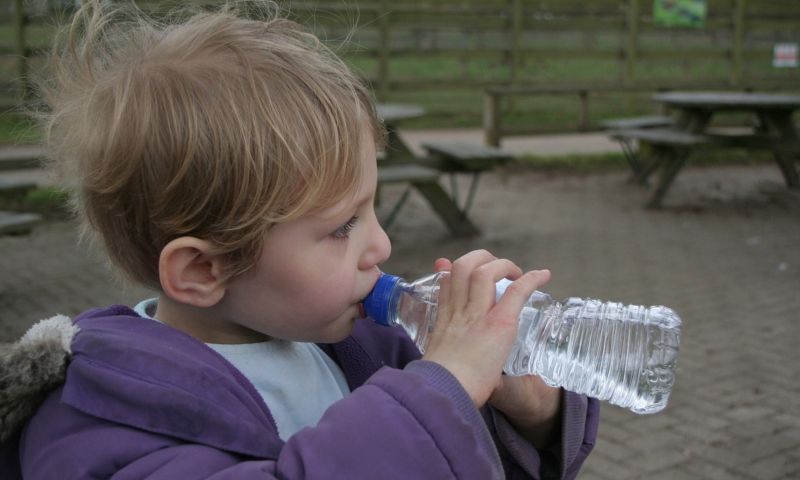
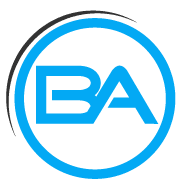
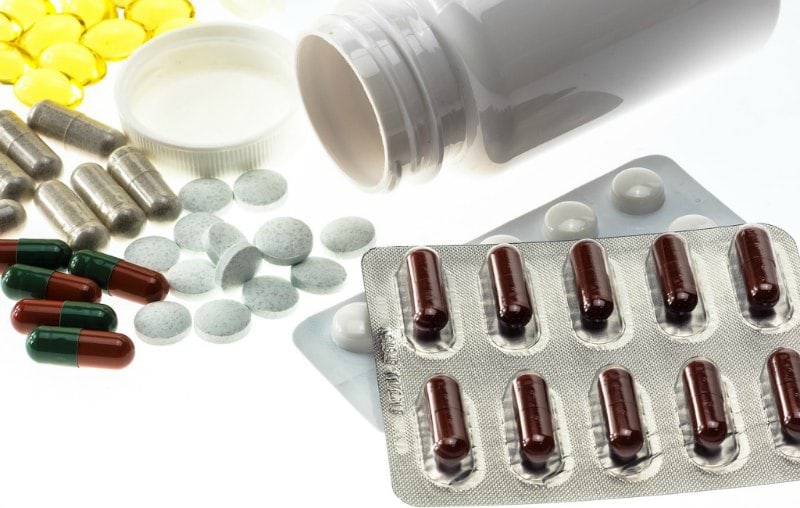
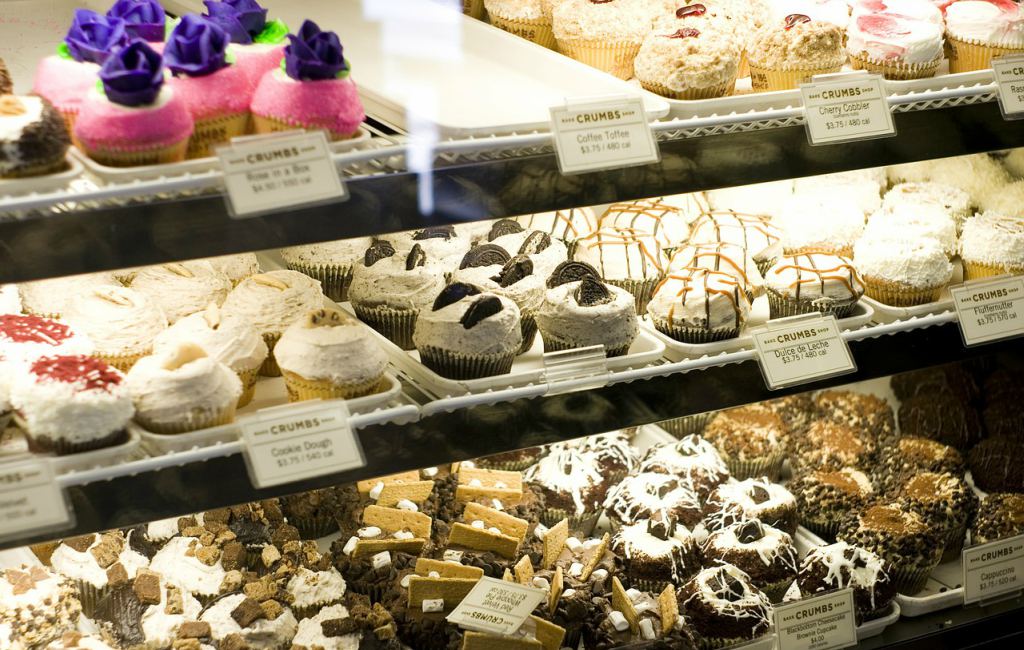
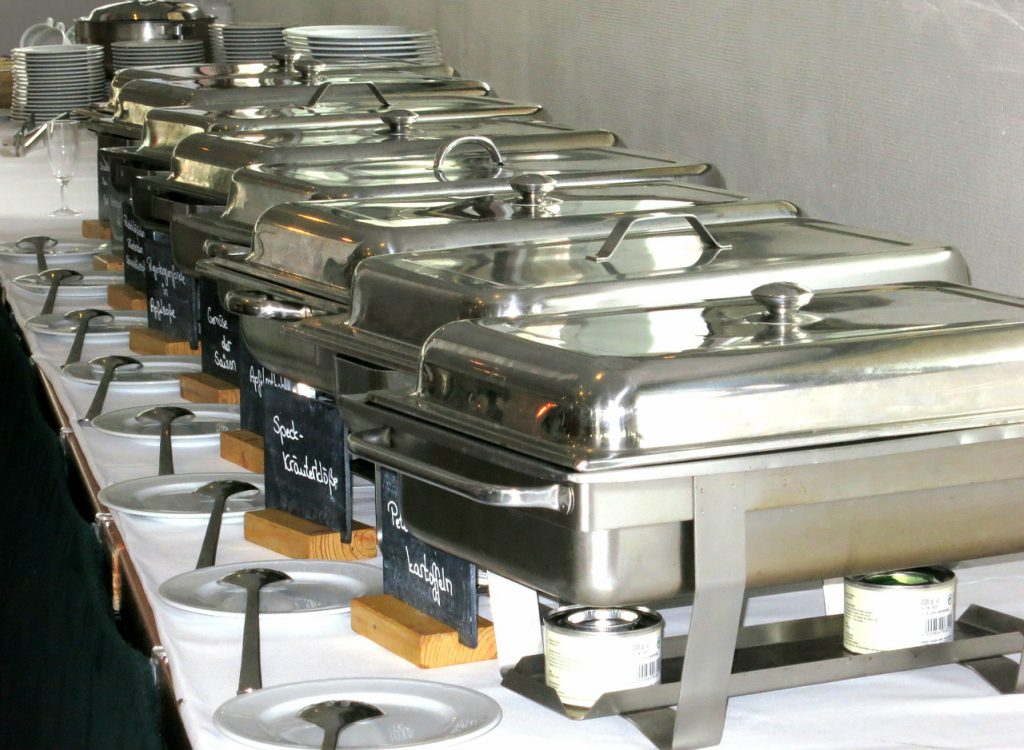
0 Comments